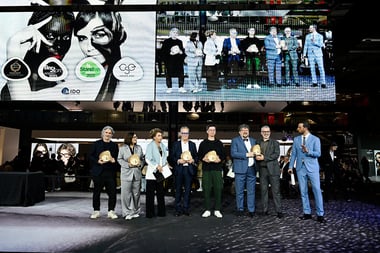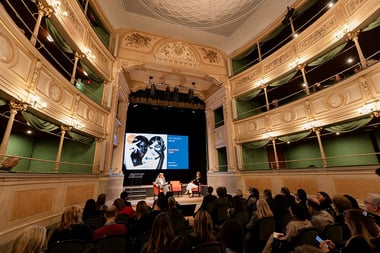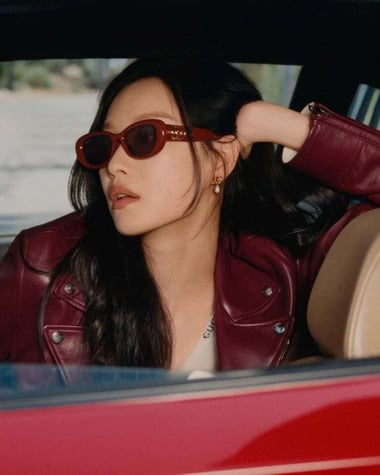
Winners of the CSE Award 2023: Llexan Italia.
For some years now, Mido has pursued the objectives of sustainability and company transparency. This commitment led to it being awarded ISO 20121:2012 certification, an international standard attesting to sustainable management of large events.
In fact, the Milan fair considers the reduction of environmental and social impact not only to be a simple necessity but a real duty; at the same time, MIDO also sees it as a duty to increase awareness by exhibitors, suppliers and visitors, sensitising and transforming them into sustainability ambassadors.
Among the activities introduced in this perspective, this year sees the arrival of the “zero” edition of the CSE AWARD - Certified Sustainable Eyewear 2023, an award created by MIDO in partnership with ANFAO and Certottica which assesses levels of sustainability in the international eyewear industry. An expert panel of judges evaluated the products that were entered in the contest, using specific criteria regarding their environmental and social impact and taking into account the entire life cycle of the product: recycling of materials, reduction of consumption in the manufacturing and distribution processes, enhancement of the supply chain, elimination of waste, level of recyclability, use of renewable energy sources, etc.
Six categories were judged: Sunglasses Europe, Sunglasses Rest of the World, Frames Europe, Frames Rest of the World, Cases Europe and Cases Rest of the World.
Today we meet the winner of the CSE Award Frames Europe: Llexan Italia with the project “Essere Unici” of the brand Eyewear 4 You.
The spokesperson is Andrea Tranquillin, Sales Dept, Manager of the company.
Why did you decide to take part in the CSE Award contest?
We decided to take part in the CSE Award contest immediately as we understood that the project we were working on offered all the qualities necessary to be in with a chance of winning this award, being entirely focused on environmental sustainability.
What represents for you the CSE Award contest?
This award is for us, firstly, a confirmation that the path we have undertaken and followed up to now is the right one, and strongly desirable for the future, not just in our opinion but also according to the judging panel who evaluated our work. And secondly, it offers us satisfaction now for the results we have already achieved and a motivation to continue in this direction with even greater commitment and effort.
Can you tell us about your project?
The glasses are just the outer layer of the project, which have surely been rewarded for their characteristic and unusual shape as well as the unique chromatic pattern which is the result of our recycling of material; in reality, this recycling is the jewel in the crown of our research into environmental sustainability.
In your opinion, why did the jury choose you as the winner?
In our opinion, our project was chosen because the jury recognised the opportunity presented by the “Riessere Unici” (Re-being Unique) process, of combining aesthetics with almost entire recycling of raw materials used in the creation of acetate frames. This is a re-use which does not stop at one set of frames; the material can be used perpetually, theoretically in infinite recycling.
How is your company’s commitment to sustainability expressed?
The process itself has obviously already been adopted in our company since the trialling, and it allows us to significantly reduce the use of plastic materials and subsequent disposal of these (it should be remembered that cellulose acetate cannot be disposed and re-used like normal plastic). From a wider perspective, we offer our fellow manufacturers the possibility to send us their waste materials which we will return to them in perfectly utilisable sheets, thus offering the entire sector the chance to reduce acetate-derived waste as much as possible.
How will the question of sustainability evolve in the future of the eyewear industry?
In the future, the need for sustainable products will become ever more important, not only in terms of eyewear but also in packaging (in fact, the awards also rightly address the various types of packaging). The environment demands it of us but there is also a need to optimise our manufacturing processes because, in our opinion, environmental and economic sustainability increasingly go hand in hand. The products will be the logical consequence of this cultural transformation. We believe we have already taken a small but important step in this direction. It is up to us, first and foremost, to transmit this message to the entire supply chain, right up to the end consumer.


